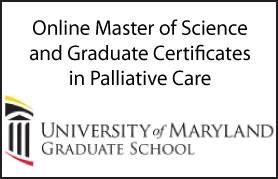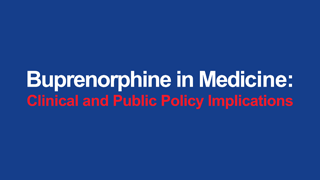Aromatherapy as an adjunctive therapy for neonatal abstinence syndrome: A pilot study
DOI:
https://doi.org/10.5055/jom.2020.0558Keywords:
NAS, aromatherapy, neonateAbstract
Objective: To determine if aromatherapy added to the current standard of care for opioid withdrawal syndrome decreases hospitalization and need for opioid replacement in neonates.
Design: Nonblinded, randomized control trial.
Setting: Level 4 neonatal intensive care unit (NICU).
Patients and participants: Thirty eight patients met inclusion criteria of greater than or equal to 36 weeks of gestation, history of intrauterine opioid exposure, primary diagnosis of neonatal abstinence syndrome (NAS), and parental permission to participate.
Interventions: Infants were randomized to either a standard therapy group or a standard therapy plus aromatherapy.
Main outcome measure(s): Duration of therapy and length of stay.
Results: Our pilot study showed that the use of aromatherapy in conjunction with standard therapy reduced the duration of medication treatment by 41 percent and hospital length of stay in the NICU by 36 percent.
Conclusions: The use of aromatherapy appears to help mitigate symptoms of NAS and offers to be a viable treatment modality when used with conventional therapy.
References
Maeda A, Bateman B, Clancy C, et al.: Opioid abuse and dependance during pregnancy. Perioper Med. 2014; 121: 1158-1165.
McQueen K, Murphy-Oikonen J: Neonatal abstinence syndrome. N Engl J Med. 2016; 375(25): 2468-2479.
Hayes MJ, Brown MS: Epidemic of prescription opiate abuse and neonatal abstinence. JAMA. 2012; 307(18): 1974-1975.
Patrick SW, Schumacher RE, Benneyworth BD, et al.: Neonatal abstinence syndrome and associated health care expenditures: United States, 2000-2009. JAMA. 2012; 307(18): 1934-1940.
Parlier AB, Fagan B, Ramage M, et al.: Prenatal care, pregnancy outcomes, and postpartum birth control plans among pregnant women with opiate addictions. South Med J. 2014; 107(11): 676-683.
Crocetti MT, Amin DD, Jansson LM: Variability in the evaluation and management of opiate-exposed newborns in Maryland. Clin Pediatr (Phila). 2007; 46(7): 632-635.
Logan BA, Brown MS, Hayes MJ: Neonatal abstinence syndrome: Treatment and pediatric outcomes. Clin Obstet Gynecol. 2013; 56(1): 186-192.
Edwards L, Brown LF: Nonpharmacologic management of neonatal abstinence syndrome: An integrative review. Neonatal Netw. 2016; 35(5): 305-313.
Velez M, Jansson LM: The opioid dependent mother and newborn dyad: Non-pharmacologic care. J Addict Med. 2008; 2(3): 113-120.
Maguire D: Care of the infant with neonatal abstinence syndrome: Strength of the evidence. J Perinat Neonatal Nurs. 2014; 28(3): 204-211; quiz E3-4.
Sublett J: Neonatal abstinence syndrome: therapeutic interventions. MCN Am J Matern Child Nurs. 2013; 38(2): 102-107; quiz 7-9.
Field T, Diego M, Hernandez-Reif M, et al.: Lavender fragrance cleansing gel effects on relaxation. Int J Neurosci. 2005; 115(2): 207-222.
Tang SK, Tse MY: Aromatherapy: Does it help to relieve pain, depression, anxiety, and stress in community-dwelling older persons? Biomed Res Int. 2014; 2014: 430195.
Namazi M, Amir Ali Akbari S, Mojab F, et al.: Aromatherapy with citrus aurantium oil and anxiety during the first stage of labor. Iran Red Crescent Med J. 2014; 16(6): e18371.
Field T, Field T, Cullen C, et al.: Lavender bath oil reduces stress and crying and enhances sleep in very young infants. Early Hum Dev. 2008; 84(6): 399-401.
Thomas DV: Aromatherapy: Magic, myth or medicinal? Holist Nurs Pract. 2002; 17(1): 8-16.
Reis D, Jones T: Aromatherapy: Using essential oils as a supportive therapy. Clin J Oncol Nurs. 2017; 21(1): 16-19.
Boehm K, Bussing A, Ostermann T: Aromatherapy as an adjuvant treatment in cancer careùA descriptive systematic review. Afr J Tradit Complement Altern Med. 2012; 9(4): 503-518.
Jones HE, Kaltenbach K, Heil SH, et al.: Neonatal abstinence syndrome after methadone or buprenorphine exposure. N Engl J Med. 2010; 363(24): 2320-2331.
Ko JY Patrick SW Tong VT, et al.: Incidence of neonatal abstinence syndrome--28 states, 1999-2013. Morbidity Mortality Weekly. 2016; 65(31): 799-802.
Lim A, Cranswick N, Skull S, et al.: Survey of complementary and alternative medicine use at a tertiary children's hospital. J Paediatr Child Health. 2005; 41(8): 424-427.
Blessing WW: Inadequate frameworks for understanding bodily homeostasis. Trends Neurosci. 1997; 20(6): 235-239.
Koulivand PH, Khaleghi Ghadiri M, Gorji A: Lavender and the nervous system. Evid Based Complement Alternat Med. 2013; 2013: 681304.
Srivastava JK, Shankar E, Gupta S: Chamomile: A herbal medicine of the past with bright future. Mol Med Rep. 2010; 3(6): 895-901.
Lis-Balchin M, Hart S: Studies on the mode of action of the essential oil of lavender (Lavandula angustifolia P. Miller). Phytother Res. 1999; 12: 3.
Sutter MB, Leeman L, Hsi A. Neonatal opioid withdrawal syndrome. Obstet Gynecol Clin North Am. 2014; 41(2): 317-334.
Conrad P, Adams C: The effects of clinical aromatherapy for anxiety and depression in the high risk postpartum woman-A pilot study. Complement Ther Clin Pract. 2012; 18(3): 164-168.
Published
How to Cite
Issue
Section
License
Copyright 2005-2024, Weston Medical Publishing, LLC
All Rights Reserved












